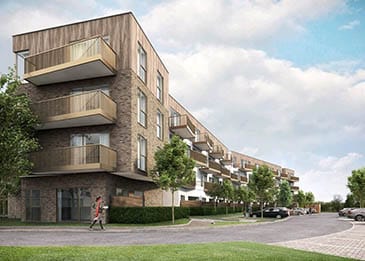- News
- COP26: A Greener Future for Construction

COP26: A Greener Future for Construction
Climate talks at COP26 in Glasgow have dominated national and industry news in recent weeks. For several years, decarbonisation and climate action have been recognised amongst the critical challenges being faced by the construction industry – alongside digital transformation – however, there is now a growing sense of urgency.
For people new to the climate-action movement, COP26 is the 26th annual Conference of the Parties, which is an international UN summit that brings global collaborators together to address issues around climate change and to share learnings as we transition to a low carbon economy.
Built Environment Day at COP26 marks the first time the climate-change summit has held a full day dedicated to the climate implications of cities, regions and the built environment. This industry-specific focus has been welcomed, given that real estate accounts for 40 percent of all annual global carbon emissions. Data provided at the summit shows that the value chains of cities are responsible for approximately 68 percent of global emissions each year.
One of the big events of the day was the launch of an Urban Climate Action Programme (UCAP) by the UK Government, which will provide £27.5 million to at least 15 cities across the developing world over a three-year period. These cities will get support to decarbonise public transport systems and energy systems, to improve climate risk assessments and to make waste management more sustainable.
1,049 cities and local governments (representing 722 million people) are now participating in the Race to Zero, including 60 percent of the largest listed businesses in the UK.
Significantly, the UK Green Building Council (UKGBC) took the opportunity to launch its Whole Life Carbon Roadmap – a tool to help businesses across the built environment sector measure and cut carbon from materials, processes, operation and demolition. This can also be used for measuring, reporting and reducing embodied carbon. The Whole Life Carbon Roadmap includes markers or prompts for policy-makers to facilitate the delivery of net-zero by 2050, which is seen as critical to keep everything on track for sub-2C (ideally 1.5C) global average temperature rise.
Similarly, Ireland has committed to net zero by 2050. This will require massive changes across construction and it is something that the Townmore team is committed to achieving through the increased use of MMC and emerging technologies for the industry, together with continued adoption of Lean methodologies: https://townmore.ie/news/the-continuing-growing-importance-of-lean-construction-principles-in-2021/.
*Further reading: COP26 – Six things you need to know from Cities, Regions and Built Environment Day https://www.edie.net/news/9/COP26–six-things-you-need-to-know-from-Cities–Regions-and-Built-Environment-Day/


